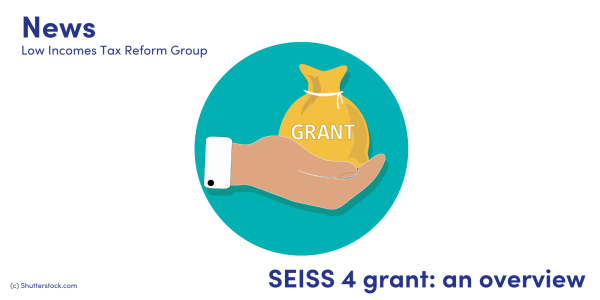SEISS 4 grant – an overview
It is welcome news to many self-employed people and partners in trading partnerships that the fourth Self-Employment Income Support Scheme grant (SEISS 4) claim process is now open until 1 June. This time, some people who started a business during the 2019/20 tax year will be eligible to claim.
However, the way the SEISS 4 grant will be calculated is different to the first three grants. This article explains what is different and why you might not be eligible for this grant even if you successfully claimed the first three SEISS grants.

Content on this page:
How is the SEISS 4 grant calculation different?
The first three SEISS grants were calculated by averaging trading profits over three tax years (2016/17, 2017/18 and 2018/19). If you had not traded continuously for the three tax years, the calculation was slightly modified.
For SEISS 4, the calculation will include profits from the 2019/20 tax year as well as the 2016/17, 2017/18, 2018/19 tax years (if applicable). This means that for many SEISS claimants the actual grant will be based on average profits over four years not three. This will most likely result in a different grant amount than has been received from previous claims.
The amount of the SEISS 4 grant will be equal to 80% of three months’ average profits. This is the same percentage as for the first and third grants. However, whether you receive a higher or lower SEISS 4 grant compared to the amount you received for SEISS 1 and SEISS 3 will depend on whether you had higher or lower profits during 2019/20 when compared to the average of 2016/17, 2017/18 and 2018/19. Our webpage on SEISS 4 has examples which illustrate this.
These changes may benefit claimants who started their business during the 2018/19 tax year and so may not have had a full year’s profits for the 2018/19 tax year. This is because their SEISS 4 calculation will include a full year’s results from 2019/20 as well as the profit for 2018/19 which will probably result in higher average profits and so a higher SEISS grant.
Why am I not eligible for SEISS 4 even though I received the first three SEISS grants?
You may have been eligible to claim the first three grants but are not eligible for SEISS 4. The main eligibility conditions are listed in detail on our ‘SEISS fourth and fifth grants’ webpage and on GOV.UK.
One of the conditions is that you must have submitted your 2019/20 tax return to HMRC on or before 2 March 2021. It may be the case that you are still continuing your self-employment but did not submit a tax return by this deadline, perhaps because you were eligible to full relief under the trading allowance, however this will mean you are not eligible to claim SEISS 4.
It may also be the case that the inclusion of the 2019/20 tax year means your average profits are greater than £50,000 or your non-trading income is more than your trading income when you consider the four relevant tax years. Either of these situations means you would not be eligible for SEISS 4.
Why am I not eligible for the grant when I started my self-employment in the 2019/20 tax year?
Although the Budget announcement focussed on the newly self-employed (people who began their self-employment during the 2019/20 tax year) being able to claim SEISS 4, the eligibility conditions explained above still apply.
This may mean that you are not eligible to claim if, for example, you were employed for a number of months in the tax year before you started your self-employment and so your non-trading income is more than your trading income in the 2019/20 tax year.
For example, Johann was employed until November 2019 and his P45 shows he earned £14,000 up until he left his job. He then started a self-employed business and made £10,000 profit in the period to 5 April 2020. As his 2019/20 non-trading income (£14,000) is more than his trading income (£10,000), he is not eligible for SEISS 4.
If you have received a letter from HMRC requesting information about your business to enable them to perform pre-validation checks but you have not provided HMRC with the documents requested, then you will not be able to claim SEISS 4 until this has been dealt with. If this is the case, you should call the HMRC SEISS helpline as soon as possible to resolve the situation so you do not miss out on claiming the grant.
Is the claims process for SEISS 4 the same as for previous SEISS grants?
As with previous rounds of grants, claims are to be made online. HMRC should have contacted you from mid-April to advise you of your personal claim date. This is the date from which you can make a claim using the online service. Claims must be made on or before 1 June 2021. If you haven’t received an email or letter from HMRC telling you when you can claim you should contact HMRC from the end of April.
If you cannot use the online service contact the SEISS helpline.
Where can I find more information on the SEISS grants?
There is more guidance on the first three SEISS grants on our SEISS webpage including information on how these grants interact with tax credits and universal credit.
We cover the SEISS 4 grant on a new webpage which also explains what we know so far about the 5th grant.
We also have a webpage explaining the additional rules for self-employed individuals or partners to qualify for the SEISS 4 grant if certain pregnancy or parental responsibilities had affected their income in 2019/20.
